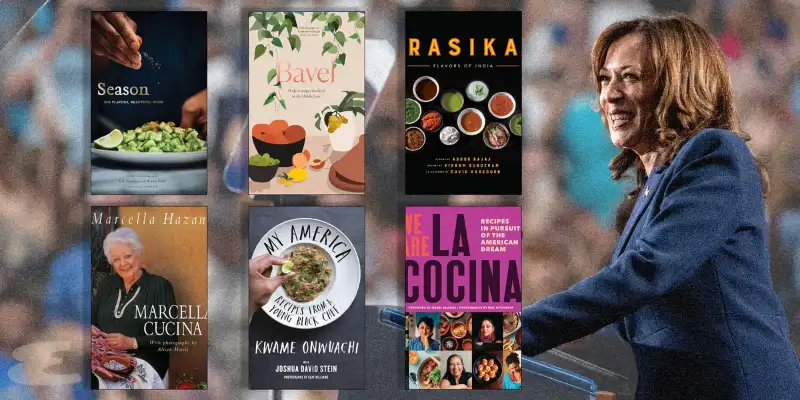Just a week after Kamala Harris stepped up as the presumptive Democratic nominee for president, the public’s curiosity about every facet of her life has skyrocketed. From her music playlists to her favorite drinks, every detail is under scrutiny. But nothing has stirred more genuine interest than a recent photo circulating online a revealing snapshot of her personal cookbook collection. This isn’t campaign staging; it’s a glimpse into Harris’s private world, and it tells a deeper story about the woman who could soon be leading the country.
Harris’s reputation as an avid home cook precedes her. She’s famous for her Sunday dinners, and her signature bolognese is a frequent topic on her YouTube cooking show. Still, the real surprise is in the diversity and purpose of her cookbook stack. This is not just a collection for display it’s a culinary road map to Harris’s heritage, her community focus, and her political journey.
At first glance, her library splits neatly into themes. There’s a strong representation of African American and diaspora cuisine, with titles like Michael Twitty’s The Cooking Gene and Chef Paul Prudhomme’s Louisiana Kitchen. These books trace the journey of West African food traditions across the Caribbean and into the American South stories that resonate personally with Harris, given her Jamaican and Indian roots. For Harris, food is a living connection to ancestry, struggle, and resilience.
Посмотреть эту публикацию в Instagram
But her collection also spotlights her empathy and sense of community. The inclusion of Together, a cookbook created by women in West London following the Grenfell Tower tragedy, and We Are La Cocina, a celebration of recipes from immigrant women in San Francisco, reveals Harris’s appreciation for food as a force for healing and belonging. She sees cooking as more than nourishment it’s a tool for building bridges and understanding.
What stands out most is that these are books for someone who truly cooks. Among the stack are practical guides, like Tom Colicchio’s Craft of Cooking and Diana Henry’s From the Oven to the Table clear signals that Harris values substance and technique over trend. There’s also Marcella Hazan’s Marcella Cucina, reflecting a hands-on approach to regional Italian food. This isn’t the staged bookshelf of a politician hoping to look cultured; it’s the lived-in, stained, and well-thumbed library of a home chef.
Harris’s political history also comes through. There are nods to iconic restaurants in California and D.C., like the cookbook from Bavel in Los Angeles and one from Rasika, the modern Indian restaurant in D.C. There are even connections to previous White House occupants, such as Eat a Little Better by former Obama chef Sam Kass and a cookbook from Red Truck Bakery, a presidential favorite.
Perhaps what’s most refreshing is the message this collection sends. For once, voters are presented with a candidate whose real, everyday passions align with her public image. Harris’s cookbooks reveal a leader who cooks not only for herself but for others, who sees food as a way to understand heritage, foster community, and bring people together. As Diana Henry, one of the cookbook authors, put it, “It isn’t just about donning an apron and making a quick dish on a Wednesday night, it’s about geography, history, farming, politics, and what connects us.”
Kamala Harris’s cookbooks aren’t just a hobby they’re a statement. In her kitchen, just as in her politics, she’s unafraid to get her hands dirty, explore new territory, and put good food on the table for everyone. Maybe all America needs to do now is let her cook.





